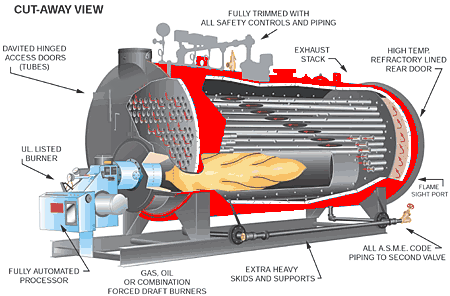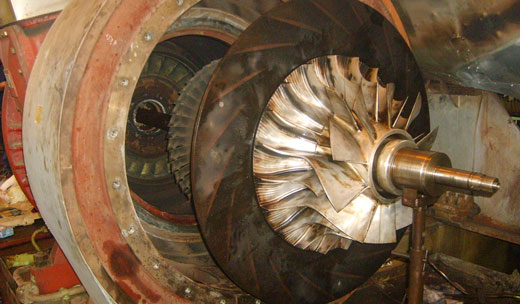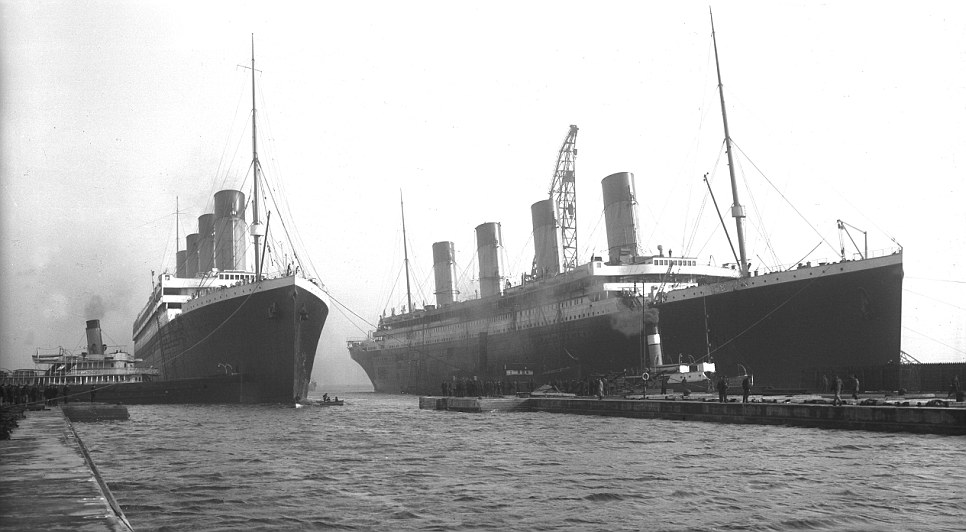
Unlike today when ships are propelled using internal combustion engine or nuclear power in the past in the past marine boilers were used aboard ships as a means of propulsion. They boil water till it has become steam under pressure than it is fed to a steam engine which that revolves to create motion which was converted to propulsion. Boilers on modern ships are used for running some machinery and service on board some ships. Marine Boilers are similar to conventional boiler but are designed for use on ships and boats. The main boiler tube is horizontal and shares most characteristics with the land based boiler. Below we shall be able to understand how boiler work, types of boilers, fuels used, safety and maintenance that they require to function effectively.

How does a boiler work?
All boilers follow the same principle. They are constructed with a fire pit, exhaust and heating channel and exhaust. The fire pit is used to light a big fire, the heat and flames than pass through heating tubes that are surrounded with water after continual heating the water boils the steam accumulate and pressure is built. This pressure is then transferred or used to do work as desired.
There are two different types of boilers:-
- water tube boilers and,
- fire tube boilers
The two are opposite from each other but follow the same principle.
Water tube boiler is boilers that water passes within the tube and the heat source outside the tube. There is normal a water jacket around the fire pit and tubes are normally arranges from the fire pit and extend till the exhaust to maximize the heat capturing process. Fire tube boilers are slightly different; they also share the water jacket and tubes but instead of water running within the tubes fire run through them. The tubes are concealed within the water jacket that extends till the exhaust of the boiler.
Fuel
Any burning material can serve as fuel. In the past wood and coal were the main fuels used on boiled but modern boiler use fuel oil to heat boilers. During the bunkering process it is important to load the right fuel specification since wrong fuel causes heating problems that can cause delays on board
Safety
As with any other safety procedure on ships, boiler maintenance is very important to avoid and accidents or fire on-board the ship. There many parts in a boiler that needs proper inspection since it is equipment that is subjected to high pressure. Inlet valves, outlet pressure valve, water intake valve and gauges must be checked regularly for any faults that they may have.
Maintenance
General maintenance is carried out on a weekly or monthly basis considering the material that is being used as fuel. Oil and coal boiler require more frequent cleaning due to soot that is produced where as gas burner require less cleaning. The cleaning is done to remove the soot that accumulates within or around the heating tubes, and the exhaust. This can be done using a number of tools that range from tube brushes to vacuum cleaners. The fire chamber is another part that tends to accumulate soot and ash from the burning material. This also needs to be removed frequently. Replacement of damages valves, pressure valves or damaged piping can also be done but this is not frequent and occurs after long periods of time.

References books:
- Marine Boilers by G.T.H Flanagan 1990.
- Marine Engineering Review by Institute of Marine Engineering 1999.
Marine Boilers,







